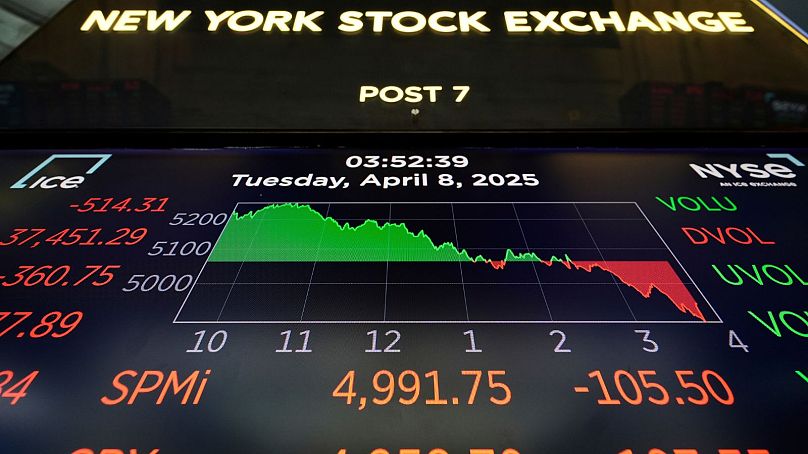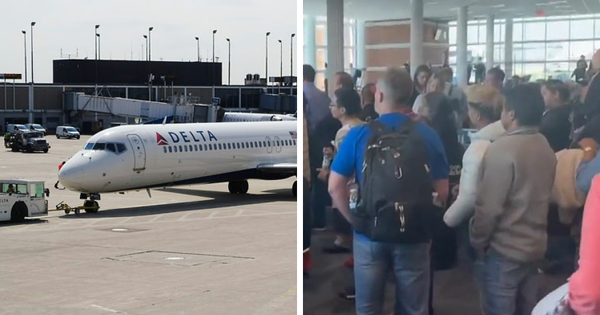US stocks tumbled again on Tuesday following another day of market volatility, with Wall Street shifting from an early surge to a sharp decline by the close.
After posting gains in the morning, stocks began to dip following President Trump's announcement that the US would impose a 104% tariff on all Chinese imports starting on Wednesday.
The S&P 500 surged as much as 4.1% early in the day, looking poised for its best performance in years, only to reverse those gains and plummet by 3%. It eventually pared its losses to 1.6%, leaving the index nearly 19% below its February record.
The Dow Jones Industrial Average lost 320 points, or 0.8%, after erasing a massive 1,460-point gain, while the Nasdaq composite dropped 2.1%.
These drastic swings followed global rallies earlier in the day, with stocks rising 6% in Tokyo, 2.5% in Paris, and 1.6% in Shanghai. Despite these gains, analysts had warned that more volatility was likely in the days and hours ahead.
The central question for investors remains how long Trump will maintain his high tariffs on other countries, which could raise prices for US consumers and slow the economy.
If the tariffs persist, economists and investors anticipate a potential recession. However, if Trump can resolve the situation quickly through negotiations, the worst-case scenario might be avoided.

There’s still some hope on Wall Street for a negotiated resolution, which fuelled the early rally. Trump announced that a conversation with South Korea’s acting president helped move them closer to what he described as a “great DEAL” for both countries.
“Their top TEAM is on a plane heading to the US, and things are looking good,” Trump posted on Truth Social. “We are likewise dealing with many other countries, all of whom want to make a deal with the United States.”
Japanese stocks led global markets higher after Prime Minister Shigeru Ishiba appointed a trade negotiator for talks with the US, a decision reportedly based on an agreement with Trump.
Meanwhile, China has vowed to “fight to the end” and promised countermeasures after Trump threatened to raise tariffs even further on the world’s second-largest economy. White House press secretary Karoline Leavitt confirmed on Tuesday that Trump’s threat to hike tariffs would take effect after midnight, with imports from China to be taxed at a 104% rate.
This new round of tariffs is set to begin at 12:01 am, and Trump has stated that no exemptions or exclusions will be allowed, according to top trade negotiator Jamieson Greer.
The US trade representative also testified before a Senate committee that about 50 countries have already reached out to discuss trade and that the US is open to negotiations.







